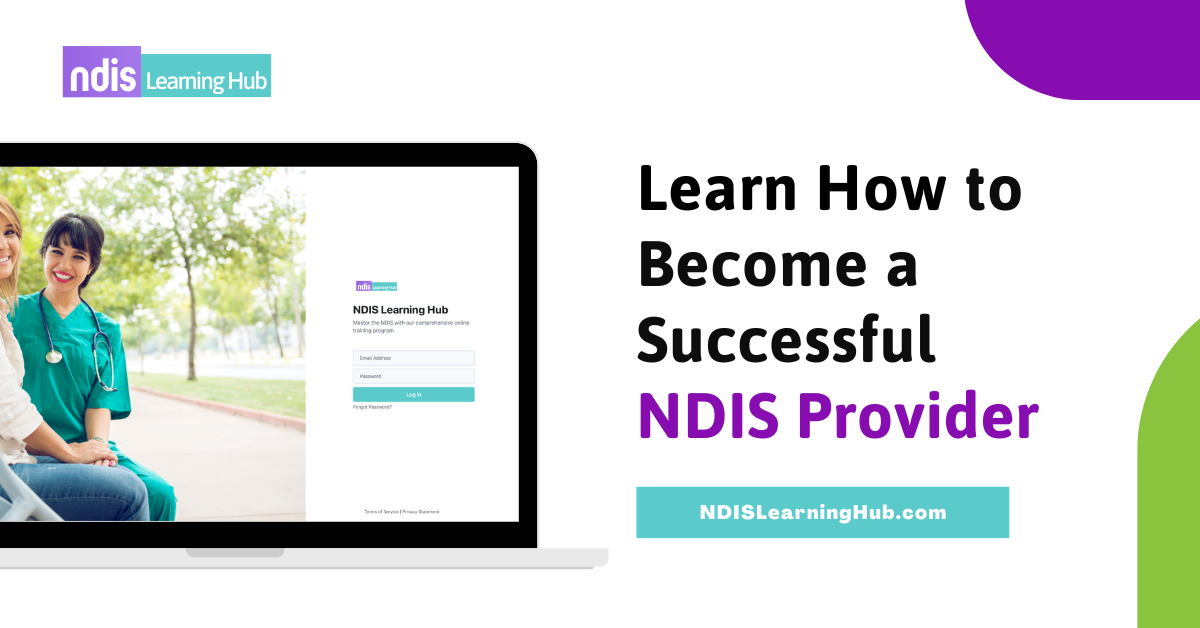How To Find NDIS Support Providers For Your Health Needs

In the pursuit of maintaining optimal health and well-being, finding a registered healthcare provider is a critical step. Whether seeking a primary care physician, a specialist, or a therapist, the choice of provider directly impacts the quality of care received.
Registered providers ensure that individuals receive reliable and professional health services tailored to their specific needs. This is particularly important for individuals accessing NDIS (National Disability Insurance Scheme) support services, as the right provider can significantly enhance the quality of life and overall health outcomes.
Healthcare providers can be categorised into various types, each serving a unique role in addressing different health concerns:
- Primary Care Physicians: These professionals offer general health assessments, preventive care, and management of chronic conditions. They serve as the first point of contact for patients and can coordinate care with specialists when necessary.
- Specialists: Specialists such as cardiologists and neurologists focus on specific areas of medicine to treat particular health issues. Their expertise is crucial for managing complex conditions that require specialised knowledge.
- Therapists: This group includes mental health professionals like psychologists and occupational therapists who support emotional and psychological well-being. They provide therapeutic interventions that can help individuals cope with various challenges.
Finding the right provider is essential for individuals, especially those who are NDIS participants. The process can be overwhelming, given the multitude of options available. However, taking the time to identify a suitable provider can lead to improved health outcomes and a better quality of life. The importance of this choice cannot be overstated, as it lays the foundation for effective treatment and ongoing support.
This article aims to provide a comprehensive, step-by-step guide to locating trustworthy and qualified healthcare providers. It will cover various methods, such as:
- Utilising online directories to find registered providers.
- Seeking personal recommendations from friends, family, or other healthcare professionals.
- Checking credentials and qualifications to ensure the provider meets necessary standards.
- Considering location and accessibility to facilitate regular visits.
- Evaluating insurance coverage to avoid unexpected costs.
- Reading patient reviews to gauge the quality of care provided.
By the end of this guide, readers will be equipped with the knowledge needed to make informed decisions and find the right provider to meet their individual health requirements.
The journey to finding a registered healthcare provider may seem daunting, but with the right approach and resources, it can be a straightforward and rewarding process. Remember, the goal is to establish a supportive relationship with a provider who understands your unique health needs and can assist you in navigating the complexities of healthcare services.
In conclusion, investing time in finding the right healthcare provider is an essential step towards achieving better health outcomes. Whether you are looking for therapeutic supports, personal care, or other NDIS supports, the right provider can make a significant difference in your health journey. Let us delve into the steps necessary to locate a registered provider that aligns with your health needs.
Step 1: Assess Your Health Needs
Before embarking on the journey to find a suitable NDIS support provider, it is imperative to thoroughly assess and understand your specific health needs. This foundational step is crucial as it guides you in identifying the right type of healthcare professional who can address your unique requirements effectively.
By clearly defining your health concerns, you can streamline the search process and ensure that you engage with a provider who is well-equipped to support your needs.
Understanding your health needs involves evaluating both your current health conditions and any potential future requirements.
This evaluation helps in determining which specialist or type of provider is best suited to deliver the necessary support. For example, if you have a chronic condition that requires ongoing management, such as diabetes, you might need a primary care physician or an endocrinologist.
Alternatively, if you are dealing with mental health issues, a psychologist or therapist could be the appropriate choice.
Here is a list of common health issues and the corresponding specialists who can provide targeted care:
- Heart Issues: Cardiologist
- Diabetes Management: Endocrinologist
- Mental Health: Psychologist or Psychiatrist
- Respiratory Issues: Pulmonologist
- Musculoskeletal Pain: Rheumatologist or Orthopedic Specialist
- Skin Conditions: Dermatologist
Assessing your health needs also involves recognising any additional support requirements, such as community nursing care, assistive technology, or therapy services. These considerations are particularly important for NDIS participants, who may benefit from specialised services to enhance their daily living and independence.
"Understanding your personal health needs is the cornerstone of effective healthcare. It empowers you to make informed decisions and ensures that the care you receive is aligned with your goals and lifestyle." — Dr. Emily Carter, Healthcare Expert
By taking the time to assess your health needs, you set the stage for a more focused and successful search for an NDIS support provider. This step not only saves time and effort but also enhances the likelihood of finding a provider who can deliver the comprehensive care you deserve. As you proceed, keep in mind that your health needs may evolve over time, and it is important to regularly reassess them to ensure continued alignment with your healthcare providers.
Step 2: Utilise Online Directories
In the digital age, online healthcare directories have become an invaluable resource for locating NDIS support providers tailored to your health needs. These platforms offer comprehensive databases of registered providers, enabling users to compare credentials, patient feedback, and available services. By leveraging these tools, you can efficiently narrow down your options and make informed decisions regarding your healthcare.
To effectively use online healthcare directories, follow these steps:
- Start by visiting reputable online directories such as Healthgrades or Zocdoc. These platforms offer user-friendly interfaces that allow you to search for providers by specialty, location, and insurance acceptance.
- Enter specific criteria related to your health needs and geographic location to filter the search results. This customisation helps to identify providers who are most suitable for your situation.
- Review detailed provider profiles that include information about their qualifications, areas of expertise, and patient ratings. This data is crucial in assessing the quality and reliability of potential providers.
When evaluating providers through online directories, consider the following key factors:
- Provider Credentials: Verify the provider's qualifications, certifications, and affiliations with relevant professional bodies.
- Patient Reviews: Analyze feedback from previous patients to gauge satisfaction levels and the quality of care provided.
- Service Offerings: Ensure that the provider offers the specific services you require, such as therapy services or community nursing care.
- Location and Accessibility: Consider the convenience of the provider's location for regular visits and any accessibility needs.
By utilising these online directories, you can effectively identify and connect with NDIS support providers who meet your specific health requirements. This step is pivotal in ensuring that you receive high-quality care and support tailored to your individual needs. As you proceed, remain diligent in verifying the information and reviews to make the best possible choice for your healthcare journey.
Step 3: Seek Recommendations
Personal recommendations are a powerful resource when searching for NDIS support providers. Friends, family, and other healthcare professionals can offer invaluable insights based on their own experiences, helping you find trustworthy and competent providers tailored to your specific needs. This approach not only adds a personal touch to your search but also often leads to more satisfactory outcomes.
To effectively seek recommendations, consider the following tips:
- Identify Your Network: Reach out to individuals within your personal and professional networks who have experience with NDIS providers. This might include family members, friends, colleagues, or even other healthcare providers.
- Ask Specific Questions: When seeking referrals, ask targeted questions to gain deeper insights. Consider questions such as:
- "What was your overall experience with the provider?"
- "Did the provider meet your specific health needs?"
- "How was the communication and responsiveness of the provider?"
- "Would you recommend their services to others? Why or why not?"
- Document Recommendations: Keep a record of all recommended providers and the feedback you receive. This will aid in comparing options and making an informed decision.
Anecdotal evidence underscores the significance of personal recommendations. Consider the experience of Sarah, a Melbourne resident seeking support for her elderly father’s daily living activities. Unsure where to begin, she consulted a trusted colleague who had recently arranged care for her own parent.
Based on this recommendation, Sarah connected with a Innergrowth Hub known for their attentive service and personalised care plans. The recommendation proved invaluable, as the provider offered tailored services that greatly enhanced her father’s quality of life.
Ultimately, seeking personal recommendations can significantly streamline your search for NDIS support providers. By tapping into the experiences of those you trust, you are better equipped to find a provider who aligns with your expectations and health needs. This step, combined with other methods outlined in this guide, enhances the likelihood of securing high-quality and reliable support services.
Step 4: Check Credentials and Qualifications
Ensuring that your chosen NDIS support provider possesses the necessary credentials and qualifications is a crucial step in guaranteeing high-quality care. Verifying a provider's credentials—such as board certification and licensing—assures that they meet the professional standards required to deliver safe and effective services. This step is vital for establishing trust and confidence in the care you or your loved ones receive.
To assist you in this verification process, consider the following checklist:
- Verify Licensing: Confirm that the provider holds a valid licence to practise in their specific field. This information is typically available through state licensing boards or the NDIS Commission.
- Check Board Certification: Determine if the provider is board-certified in their specialty area. Certification indicates that the provider has undergone rigorous training and assessment.
- Review Educational Background: Examine the provider’s educational history, including the institutions attended and any advanced degrees or specialisations.
- Look for Professional Affiliations: Membership in professional associations can indicate a commitment to ongoing education and adherence to industry standards.
- Assess Experience: Consider the provider’s years of experience and any specific expertise in dealing with particular conditions or needs that are relevant to you.
Research has shown that credentials directly impact patient satisfaction and health outcomes. According to a study published in the Journal of Health Services Research & Policy, patients reported higher satisfaction levels when treated by board-certified practitioners. Furthermore, the National Institutes of Health emphasises that providers with verified credentials tend to have better patient outcomes, underscoring the importance of this step in your selection process.
By thoroughly checking a provider's credentials and qualifications, you can confidently select an NDIS support provider who is not only competent but also committed to delivering exceptional care. This diligence ensures that you or your loved ones receive the highest standard of support, aligning with your health needs and expectations.
Step 5: Consider Location and Accessibility
When selecting an NDIS support provider, the location and accessibility of their services play a pivotal role in ensuring convenience and continuity of care. Choosing a provider situated within a reasonable distance from your home or workplace can significantly enhance your ability to attend regular appointments, thereby improving overall health outcomes and ensuring efficient utilisation of NDIS support services.
Here are key considerations when evaluating location and accessibility:
- Proximity: Assess how close the provider's office is to your home or place of work. Shorter travel distances can make frequent visits more feasible and reduce the burden of travel.
- Transportation Options: Evaluate the availability of public transportation or other travel options to the provider's location. Consider the cost and time implications of each.
- Office Hours: Check if the provider offers flexible office hours that accommodate your schedule, including evenings or weekends if necessary.
- Accessibility Features: Ensure that the provider's facility is accessible for individuals with disabilities. This includes wheelchair ramps, accessible restrooms, and elevators.
- Parking Facilities: Verify the availability of parking spaces, especially if you require accessible parking spots.
To assist in assessing location convenience, various tools and resources are available. Google Maps is an excellent resource for determining travel routes and estimating travel times from your location to the provider's facility. Additionally, you may consider using apps or websites that offer real-time public transportation updates and route planning.
By taking the time to consider these factors, you can choose an NDIS support provider whose location and accessibility align with your needs, thereby facilitating a more streamlined and manageable healthcare experience. Ensuring that these logistical aspects are addressed can lead to a more positive and less stressful interaction with your healthcare provider.
Step 6: Evaluate Insurance Coverage
Understanding your insurance coverage is crucial when selecting an NDIS support provider. Ensuring that a provider is in-network with your insurance plan can help you minimise out-of-pocket expenses and streamline the reimbursement process. Here, we detail how you can verify insurance compatibility and provide guidance for engaging with insurance companies effectively.
How to Check if a Provider is In-Network:
To determine if an NDIS support provider is in-network with your insurance plan, follow these steps:
- Review your insurance policy documents or log in to your insurance provider's online portal to access the list of in-network providers.
- Use the provider search tool typically available on your insurance company's website to search for specific NDIS providers. Input the provider's name or specialty to see if they are covered.
- Contact the provider's office directly to confirm their network status with your insurance plan. Ensure you have your insurance information on hand for reference.
Step-by-Step Guide to Contacting Insurance Companies:
- Prepare Your Information: Gather your insurance policy number, the name of the NDIS provider, and any specific questions you may have.
- Contact Customer Service: Call the customer service number located on the back of your insurance card. Many insurance companies also offer chat support via their websites.
- Inquire About Coverage: Ask if the provider is in-network and what services are covered under your plan. Clarify any copayments, deductibles, or referral requirements.
- Request Documentation: If needed, ask for a written confirmation of the provider's in-network status and any related costs. Keep this documentation for your records.
Frequently Asked Questions (FAQ):
What should I do if a provider is out-of-network?
Consider contacting your insurance company to discuss possible out-of-network benefits or explore alternative in-network providers.
Can I still use a provider if they are out-of-network?
Yes, but be aware that out-of-network providers may result in higher costs, as insurance companies often provide lower coverage rates for these services.
How often should I verify a provider's network status?
Check this information annually or before scheduling appointments, as provider network statuses can change over time.
By thoroughly evaluating your insurance coverage and understanding the network status of potential NDIS support providers, you can make informed decisions that align with your financial and healthcare needs. Ensuring that your chosen provider is compatible with your insurance plan can lead to a more seamless and cost-effective healthcare experience.
Limited Time Offer
Become a Successful NDIS Provider
$689 $349
Use code EARLY349 at checkout
News Feed







